We’re very happy to welcome in our team Benoît Monin and Benjamin Robin.
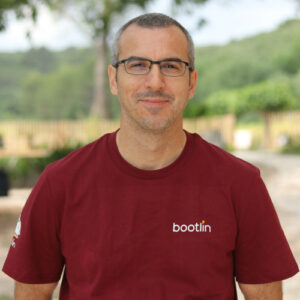 It’s been a few months already that Benoît Monin joined our team, as he started in May, just in time to participate to our yearly company-wide team week event in June. Benoît graduated from CPE Lyon in 2002, and then spent no less than 21 years at Centum Adeneo, where he worked on a large number of embedded projects, mostly Linux-based. He supported Alstom Transport on embedded systems used in train communication and signaling, including Linux porting, hardware integration on ARM platforms, and R&D on 5G train-to-ground communication. His past experience also includes work for Airbus on measurement and noise analysis systems, and for JDSU on high-speed communication test equipment using PowerPC. Benoît is also a contributor to open-source, as he contributes to OpenStreetMap and the openSUSE project. Since his arrival at Bootlin, Benoît has been mostly focused on Linux kernel upstream work, mainly around the Mobileye platforms. Check out Benoît’s page on bootlin.com for more details.
It’s been a few months already that Benoît Monin joined our team, as he started in May, just in time to participate to our yearly company-wide team week event in June. Benoît graduated from CPE Lyon in 2002, and then spent no less than 21 years at Centum Adeneo, where he worked on a large number of embedded projects, mostly Linux-based. He supported Alstom Transport on embedded systems used in train communication and signaling, including Linux porting, hardware integration on ARM platforms, and R&D on 5G train-to-ground communication. His past experience also includes work for Airbus on measurement and noise analysis systems, and for JDSU on high-speed communication test equipment using PowerPC. Benoît is also a contributor to open-source, as he contributes to OpenStreetMap and the openSUSE project. Since his arrival at Bootlin, Benoît has been mostly focused on Linux kernel upstream work, mainly around the Mobileye platforms. Check out Benoît’s page on bootlin.com for more details.
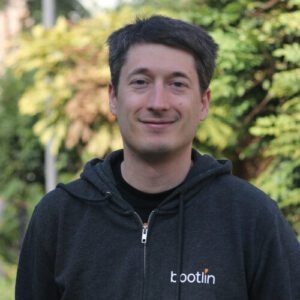 More recently, in late August, Benjamin Robin also joined our team. This time, he joined just in time to participate to the recent Open Source Summit Europe in Amsterdam, a great opportunity to meet almost the entire Bootlin’s team, and also the embedded Linux community. Benjamin also graduated from CPE Lyon, but in 2011. Prior to joining Bootlin, Benjamin spent 14 years at Centum T&S, where he held roles as both an embedded software engineer and an embedded Linux engineer. Benjamin has primarily worked on ARM platforms for industrial customers, always with a strong focus on low-level development close to the hardware. His expertise spans from embedded Linux system development to critical bare-metal software on constrained platforms such as ARM Cortex-M. He has developed significant expertise in building custom BSP layers using Yocto for projects involving various frameworks, including Qt. Benjamin also has experience developing Linux drivers for customer-specific hardware. His platform experience covers a wide spectrum, from Xilinx Zynq 7000, OMAP, and TI Sitara processors, to i.MX SoCs, Marvell OCTEON SoCs, and even some experience with x86-based SoCs. Beyond his professional work, Benjamin contributes to various open source projects, fixing bugs and implementing enhancements to improve functionality. He for example actively supports the French-speaking Arch Linux community. Check out Benjamin’s page on bootlin.com for more details.
More recently, in late August, Benjamin Robin also joined our team. This time, he joined just in time to participate to the recent Open Source Summit Europe in Amsterdam, a great opportunity to meet almost the entire Bootlin’s team, and also the embedded Linux community. Benjamin also graduated from CPE Lyon, but in 2011. Prior to joining Bootlin, Benjamin spent 14 years at Centum T&S, where he held roles as both an embedded software engineer and an embedded Linux engineer. Benjamin has primarily worked on ARM platforms for industrial customers, always with a strong focus on low-level development close to the hardware. His expertise spans from embedded Linux system development to critical bare-metal software on constrained platforms such as ARM Cortex-M. He has developed significant expertise in building custom BSP layers using Yocto for projects involving various frameworks, including Qt. Benjamin also has experience developing Linux drivers for customer-specific hardware. His platform experience covers a wide spectrum, from Xilinx Zynq 7000, OMAP, and TI Sitara processors, to i.MX SoCs, Marvell OCTEON SoCs, and even some experience with x86-based SoCs. Beyond his professional work, Benjamin contributes to various open source projects, fixing bugs and implementing enhancements to improve functionality. He for example actively supports the French-speaking Arch Linux community. Check out Benjamin’s page on bootlin.com for more details.
We are pleased to welcome Benoît and Benjamin to our Oullins office near Lyon. Their arrival brings the Lyon team to 12 members, now equaling the headcount of our Toulouse office.
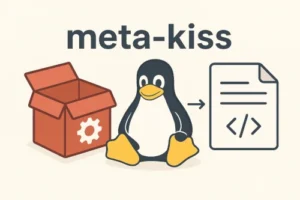 Yocto is often seen as fairly complex, and at Bootlin we believe one reason for this perception is the unnecessary complexity of the BSP layers provided by silicon or board vendors, each of which often includes highly custom logic that isn’t needed. That’s why, back in 2023, we released meta-kiss, an example layer demonstrating how simple it can be to support various hardware platforms with Yocto, without relying on any vendor-provided BSP layer.
Yocto is often seen as fairly complex, and at Bootlin we believe one reason for this perception is the unnecessary complexity of the BSP layers provided by silicon or board vendors, each of which often includes highly custom logic that isn’t needed. That’s why, back in 2023, we released meta-kiss, an example layer demonstrating how simple it can be to support various hardware platforms with Yocto, without relying on any vendor-provided BSP layer.
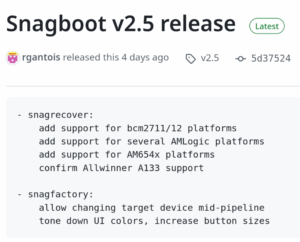
 It’s been a few months already that Benoît Monin joined our team, as he started in May, just in time to participate to our yearly company-wide team week event in June. Benoît graduated from
It’s been a few months already that Benoît Monin joined our team, as he started in May, just in time to participate to our yearly company-wide team week event in June. Benoît graduated from  More recently, in late August, Benjamin Robin also joined our team. This time, he joined just in time to participate to the recent Open Source Summit Europe in Amsterdam, a great opportunity to meet almost the entire Bootlin’s team, and also the embedded Linux community. Benjamin also graduated from
More recently, in late August, Benjamin Robin also joined our team. This time, he joined just in time to participate to the recent Open Source Summit Europe in Amsterdam, a great opportunity to meet almost the entire Bootlin’s team, and also the embedded Linux community. Benjamin also graduated from 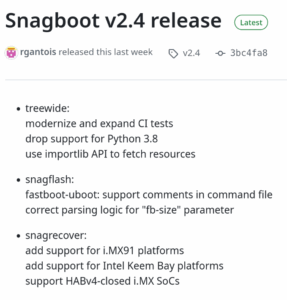
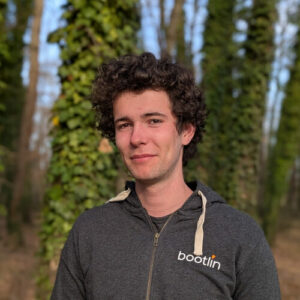
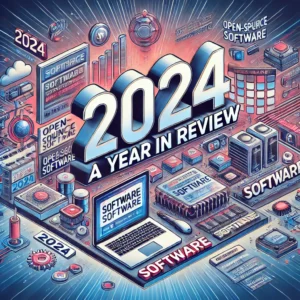 First of all, the entire Bootlin team wishes everyone a Happy New Year and best wishes for 2025!
First of all, the entire Bootlin team wishes everyone a Happy New Year and best wishes for 2025! We’re happy to announce that Thomas Bonnefille has just joined the Bootlin engineering team!
We’re happy to announce that Thomas Bonnefille has just joined the Bootlin engineering team!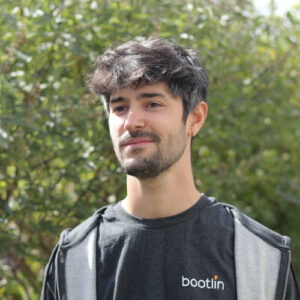 After
After